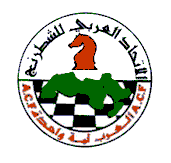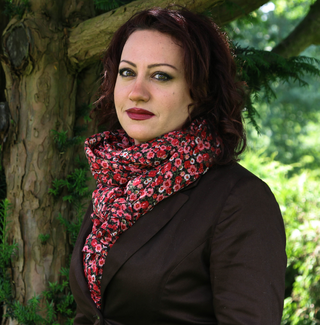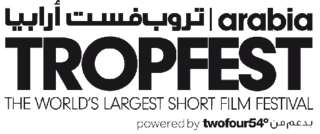
SuperStar was an Arabic television show based on the popular British show Pop Idol created by Simon Fuller's 19 Entertainment & developed by Fremantle Media. The show unites the Arab community by democratically choosing the next singing sensation. The show is broadcast worldwide on Future TV, a Lebanese television station. It is also the first Idol franchise to feature contestants from multiple countries.
Yusuf is a male name meaning "God increases". It is the Arabic equivalent of the Hebrew name Yosef and the English name Joseph. It is widely used in many parts of the world by Arabs of all Abrahamic religions, including Middle Eastern Jews, Arab Christians, and Muslims.

The Arab Parliament is the legislative body of the Arab League. At the 19th Arab League Summit in Amman, the Arab states agreed to create an Arab Parliament, and came up with a resolution to give Amr Moussa the Secretary-General of the Arab League the power to start and create the Parliament.

The Arab Chess Federation (ACF) is a non-profit organization that promotes chess within the Arab world. Though unaffiliated with the Arab League, it includes 22 of the latter's member states.

The 1964 Arab League summit was the first summit of the Arab League, held in Cairo, Egypt, on 13–16 January 1964 and attended by all fourteen of the then member states: United Arab Republic (Egypt), Iraq, Lebanon, State of Palestine, Syria, Saudi Arabia, Jordan, Yemen Arab Republic, Libya, Sudan, Morocco, Tunisia, Kuwait and Algeria.

This is a list of the competitive matches played by the Syrian football team since its inception.

Khaled al-Hassan (1928-1994) was an early adviser of Yasser Arafat, PLO leader and a founder of the Palestinian political and militant organization Fatah. Khaled was the older brother of Hani al-Hassan.

The 1964 Arab League summit in Alexandria was held on 11 September 1964 in Montaza Palace, Alexandria as the second Arab League Summit. The focus of the conference was to implement the plans discussed at the first Arab League summit held in January of that year. The summit was notable for being a key step in the buildup to the Six-Day War in 1967 and separately for "approving the establishment of the Palestine Liberation Organization."
Osama, also spelt Osamah, Oussama, and Usama, is an Arabic masculine given name.
Khalid is a popular Arabic male given name meaning "eternal, everlasting, immortal". It also appears as a surname.
The Banipal Prize, officially the Saif Ghobash–Banipal Prize for Arabic Literary Translation, is an annual prize awarded to a translator for the published English translation of a full-length literary work in the Arabic language. The prize was inaugurated in 2006 by the literary magazine Banipal, which promotes the diffusion of contemporary Arabic literature through English translations and the Banipal Trust for Arab Literature. It is administered by the Society of Authors in the UK, and the prize money is sponsored by Omar Saif Ghobash and his family in memory of Ghobash's late father Saif Ghobash. As of 2009, the prize money amounted to £3000.

Rosa Yaseen Hassan is a Syrian novelist and writer. She was born in Damascus in 1974 and studied architecture at university. Upon graduation in 1998, she worked as a journalist, writing for various Syrian and Arabic periodicals. Her first published book was a collection of short stories, published in 2000 under the title A Sky Tainted with Light. She has also written a number of novels, starting with Ebony (2004) which won the Hanna Mina Prize. Her third novel Hurras al-Hawa was longlisted for the Arabic Booker Prize.
The International Prize for Arabic Fiction Nadwa is an annual writers' workshop for young writers from the Arab world. Held under the aegis of the International Prize for Arabic Fiction, the nadwa is the first such workshop for Arab writers and has been an annual event since 2009.
Mohamed Salah El Azab is an Egyptian writer and novelist.

Tropfest Arabia is an extension of Tropfest, the world's largest short film festival. Tropfest began in 1993 as a screening for 200 people in a cafe in Sydney but has since become the largest platform for short films in the world.
After more than a year-long hiatus, the fourth series of Arab Idol was relaunched on MBC, with its premiere on 4 November 2016. Once again, just like in the previous season, the jury was composed of singers Wael Kfoury, Nancy Ajram, and Ahlam, as well as music producer Hassan El Shafei, and Ahmad Fahmi returned as host of the show. The first four episodes covered the first round of the show, the auditions process, which took place in nine different Arab countries and, for the first time ever, in Turkey. Although thousands of hopefuls put forth their candidacy, only 64 went through to the second round of auditions in Beirut, Lebanon by the end of which, the 25 semi-finalists were picked to go through to the third round, the live show. The Palestinian contestant Yaacoub Shaheen won the title.
Yassin, an alternative of Yasin, Yassine, Yaseen and Yacine, is a unisex given name mostly common in the Arab world and Muslim countries, and a surname. The name comes from a chapter (surah) of the Quran called Ya-Sin. People with this name generally originate from Turkey, Bangladesh, Pakistan, Afghanistan, Iraq, Syria, Azerbaijan, Morocco, Algeria, Tunisia, Saudi Arabia, Jordan and Lebanon.
The Distinctive International Arab Festivals Awards (DIAFA) is an annual awards show held in Dubai, UAE. It honors distinguished International and Arab personalities in recognition of their annual achievements and contribution towards committees and society betterment. The first edition of DIAFA was held in 2017.
The Federation of Arab News Agencies (FANA), a branch of the Arab League, is a membership organization for Arabic-language, national news agencies, currently of 18 or 19 members and established in 1975 in Beirut, Lebanon.







